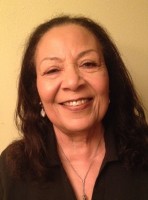The Orleans Parish School Board has been at loggerheads for two years, unable to select a new superintendent. For ideas on how to break the impasse, The Lens invited educators and advocates — including all members of the school board — to weigh in. We are publishing their thoughts in the next week.
The basic question: What does the board need to do to break the logjam and convince a top-notch educator to take charge as superintendent?

My good friend the late Oretha Castle Haley frequently said: “What appears to be isn’t what really is.” This certainly rings true in the case of the Orleans Parish School Board’s search for a superintendent. The problem is not simply the board’s failure to get the supermajority of five votes required to hire or fire a superintendent. The larger problem is a divided/deadlocked board on the issue of whether the schools should return to local control or remain a system of charters.
Charter proponents Nolan Marshall, Woody Koppel, Sarah Usdin, and Seth Bloom make up the majority voting bloc and apparently are in no rush to hire anyone who might slow down the charter movement. On the other hand, board members Cynthia Cade, Ira Thomas and Leslie Ellison are on record in favor of returning the schools to OPSB management. They too appear to be in no hurry to appoint a superintendent inclined to maintain or increase the 46 charter boards now governing New Orleans public schools.
Other views on the superintendent searchAndre Perry: School board should look for opportunity in upcoming court ruling on post-Katrina teacher layoffsSarah Usdin: Ugliness in New Orleans school board meetings deters superintendent candidatesMike Stenson: By failing to hire a superintendent, Orleans school board puts politics above educationDeirdre Johnson Burel: Orleans Parish School Board can’t advance a collective agenda, and we all share the blameWoody Koppel: Complex education system requires that Orleans Parish School Board finds the right superintendentKarran Harper Royal: School board needs to set clear direction, not seek superintendent who will tolerate ambiguity
Undergirding the charter debate is the issue of “choice.” Top education officials, politicians and the elites who influence them have cleverly convinced the public that — despite the fact that the majority of New Orleans schools still perform below the state average — the conglomeration of charter schools is better than the one system of the past. Opponents argue that the so-called “choice” reform has forced education officials to prioritize closing schools over improving them, to spend millions of dollars on busing children to schools outside their neighborhoods that in some cases are performing no better than the ones they previously attended.
Elaine Simon, co-director of the Urban Studies Program at the University of Pennsylvania agrees. Simon asserts, “Charter schools deflect responsibility and accountability by fragmenting the system, shattering it into too many pieces for the public to keep track of. They are not the city’s responsibility. Their performance is not as transparent and they do not have to take all students.”
The schism between the two OPSB factions will only increase if they are unwilling or unable to come to grips with the consequences of failed policies. As the only elected representatives of the New Orleans education community, the school board has the moral obligation to provide the best leader it can to head the school district.
I am convinced, as a result of two decades of service on the OPSB, that before a major decision is made, three prerequisite steps are required:
- Identification of the key issues impacting the decision
- Clarification of each board members’ position on those issues
- Articulation of consensus positions on each of the identified issues
A third party facilitator is recommended for the success of this process.
Education associations, organizations and universities are among the many national, state and local resources available to work with OPSB in reaching consensus on key issues related to the selection of its superintendent. It is a common practice for large organizations such as school systems to seek assistance in getting everyone on the same page through respectful, open, honest dialogue, usually facilitated by a third party.
This process would provide an environment for serious analysis of the challenges, opportunities and impediments of key public policies impacting the Orleans Parish School Board. And at the same time it would build trust among OPSB members, the public and hopefully lead to a decision.
[module align=”right” width=”half” type=”pull-quote”]By achieving consensus ahead of time, the board would avoid putting superintendent candidates in the awkward position of choosing sides.[/module]The goal should be a document developed by OPSB in the next 60 days to clarify its positions, reached by consensus, on key public policy issues impacting the Orleans Parish school system: state vs. local control, school choice, the role of charter schools, for-profit schools, and neighborhood schools, to name a few.
Once the document is completed it would then be presented at a regular school board meeting, openly discussed and voted on for its use in the superintendent selection process. By achieving consensus ahead of time, the board would avoid putting superintendent candidates in the awkward position of choosing sides.
The hiring of a superintendent/CEO of schools is a primary function of the OPSB. The educational credentials, experiences and backgrounds of current OPSB members adequately qualify them to work through a process such as the one I’ve outlined. The process gets at the core of the overdue selection of the superintendent problem: mistrust among OPSB members, created in part by the board not openly and directly addressing the tough public policy issues affecting it.
Failure to do whatever is necessary to hire a superintendent justifies a voter revolt against the present OPSB members.
Gail Glapion served on the school board 1985 to 2005. She is managing director of the Scholarship Foundation of New Orleans and chairman emeritus of the African-American Leadership Project.
